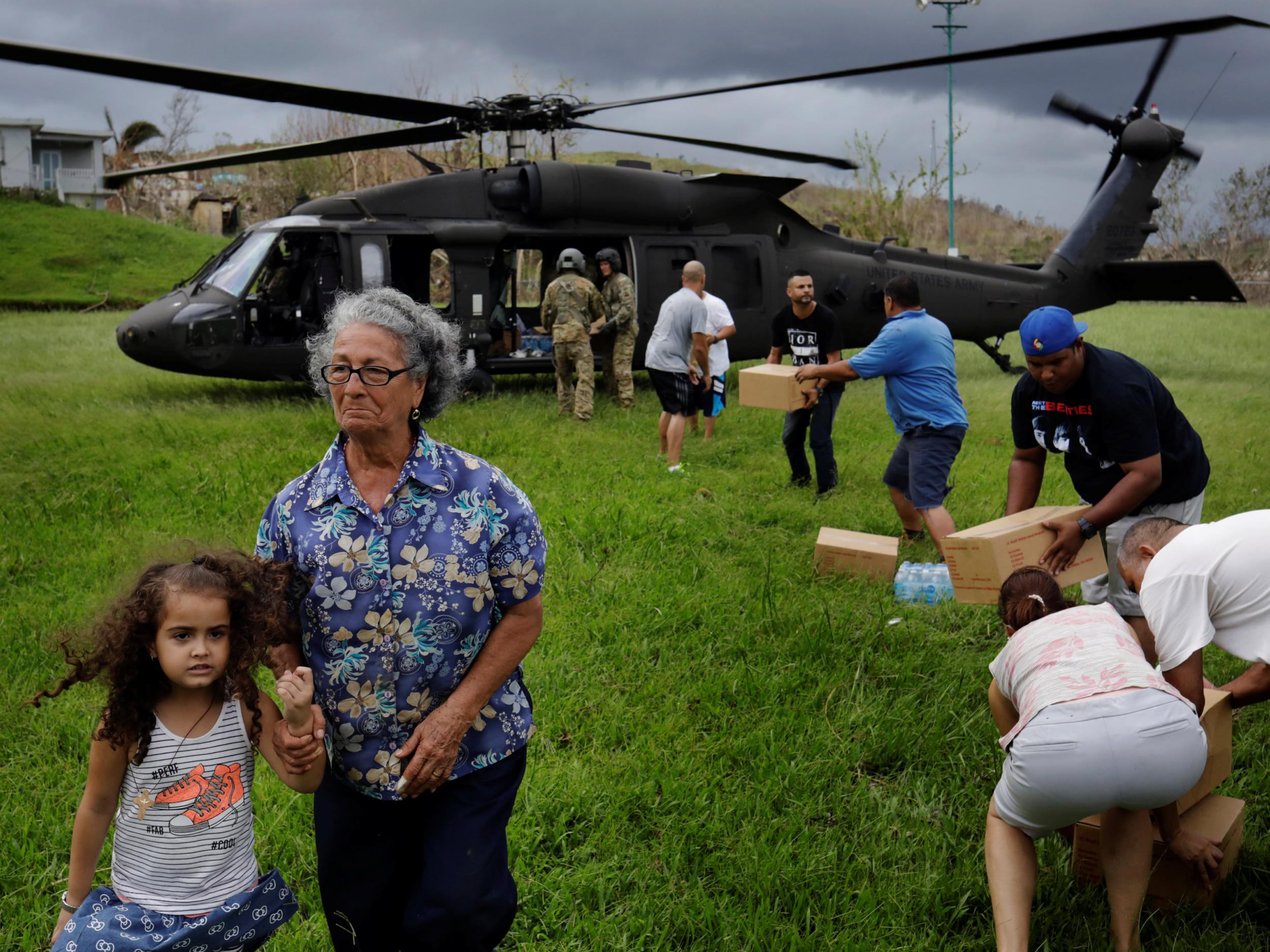Bringing aid to Puerto Rico
Julio Chavez

Your support helps us to tell the story
From reproductive rights to climate change to Big Tech, The Independent is on the ground when the story is developing. Whether it's investigating the financials of Elon Musk's pro-Trump PAC or producing our latest documentary, 'The A Word', which shines a light on the American women fighting for reproductive rights, we know how important it is to parse out the facts from the messaging.
At such a critical moment in US history, we need reporters on the ground. Your donation allows us to keep sending journalists to speak to both sides of the story.
The Independent is trusted by Americans across the entire political spectrum. And unlike many other quality news outlets, we choose not to lock Americans out of our reporting and analysis with paywalls. We believe quality journalism should be available to everyone, paid for by those who can afford it.
Your support makes all the difference.Sixteen days after Hurricane Maria ravaged Puerto Rico, Maria de Lourdes Sandoval heard helicopters over her village of Bajura.
She ran to signal them, forcefully waving her arms and crying for help as they touched down on a nearby soccer field.
“I’m helpless. I don’t have a home, don’t have anywhere to live. I don’t have furniture, no bed, no clothes,” Sandoval, 47, said.
Hundreds of villages – isolated by power outages, impassable roads and downed telephone lines – are being helped by helicopter teams from the US Army’s First Armoured Division’s Combat Aviation Brigade and the 101st Airborne Division’s “Dustoff” unit.
Daily missions are flown out of the Roosevelt Roads Naval Station in Ceiba, which was closed in 2004 but is now being used by the Army, Air Force, Marines and Navy.
“It hurts because I remember how it used to be, and now it’s completely different,” said sergeant first class Eladio Tirado, who was born and raised in Carolina, Puerto Rico. After not visiting for roughly five years, he returned home in a Blackhawk helicopter.
“Everything is so much gone. The vegetation, everything is brown, everything is dead.”
On a recent mission over Luquillo, Tirado asked the pilots to fly over his family’s home because he had been unable to reach them by phone. The helicopter circled the house. No one was there, but Tirado was confident the message would reach his family: he’s here and he’s helping.
Media reports led crews to the village of San Lorenzo, which had received no federal assistance since the hurricane. Dozens of people pressed against a fence to watch helicopters land, anxiously awaiting food and water.
Crews are also transporting people to emergency centres and mapping open roads so trucks can make deliveries.
Rooftop messages like one near Humacao come through loud and clear. “HELP USA PLEASE PR”.
Near Ciales, as Blackhawks from the First Armoured Division flew over, people on a rooftop reached toward the sky to signal they needed water one recent Saturday. As helicopters scouted the island’s mountainous interior, a woman held a jug in the air.
They circled above houses built on top of mountains to find a level field to unload their precious cargo. One field looked open and a Blackhawk came within eight feet of the ground, but it could not land.
Loaded with 100 cases of water, the helicopter flew off, leaving behind thirst and desperation. The crew soon found another needy community, Verde de Comerio, where it was able to land.
Villagers quickly lined up to help soldiers pass food and water to a crowd. One woman hugged Pilot Chris Greenway to thank him for water. In less than 10 minutes, hundreds of bottles of water were given to families, emptying the helicopter.
This village also needed medicine, and families with babies had no way of getting basics. Diapers and formula have become luxury goods. But every village asks for water.
The lack of potable water is slowly choking these villages and helicopters can only carry so much. Every trip leaves some who get nothing.
The crews can only hope they can return soon enough to make a difference.
“This island will never stop,” Tirado said. “People will rebuild, we will continue forward, and they’re going to see a better tomorrow.”
Join our commenting forum
Join thought-provoking conversations, follow other Independent readers and see their replies
Comments